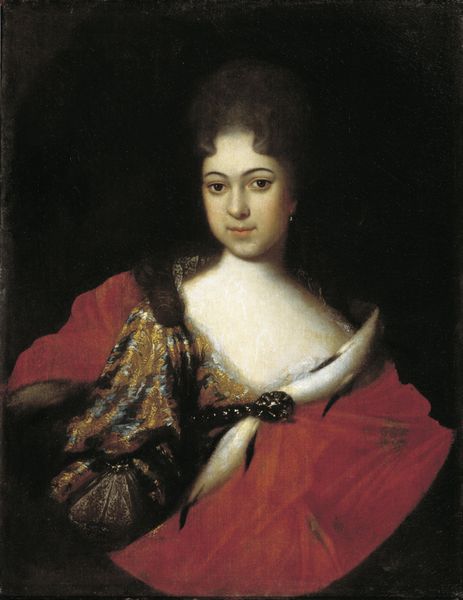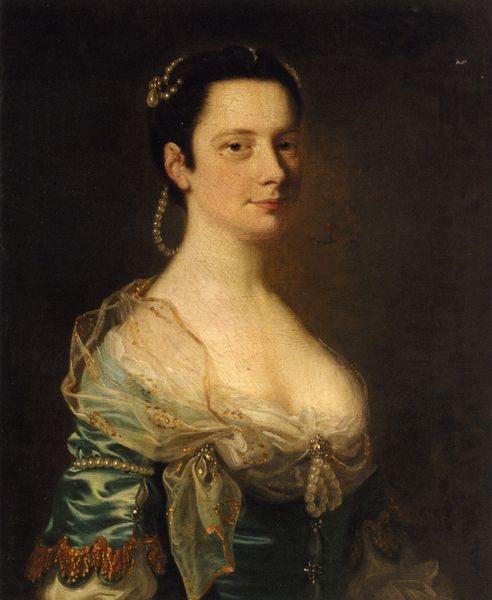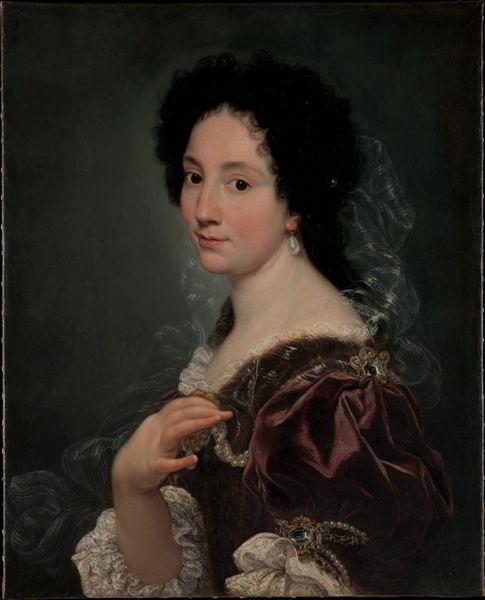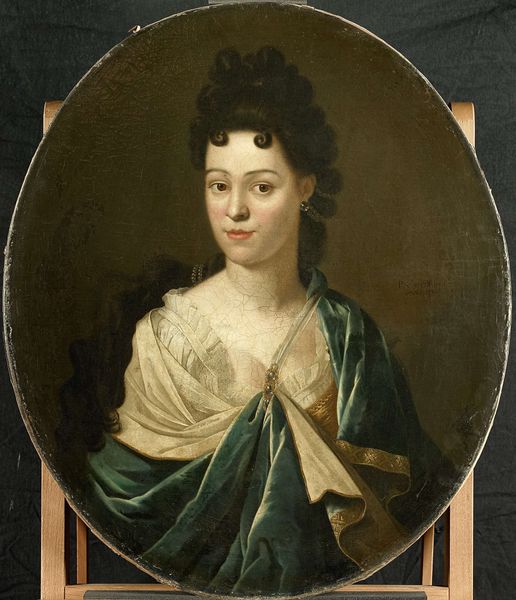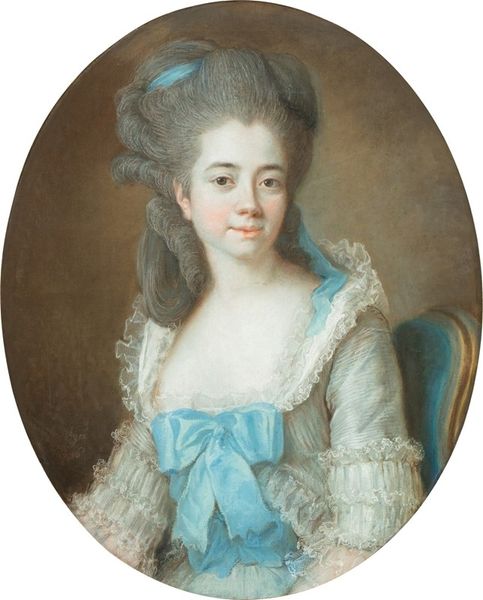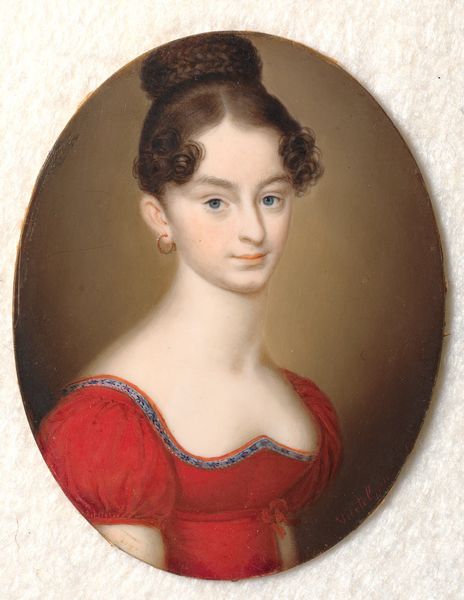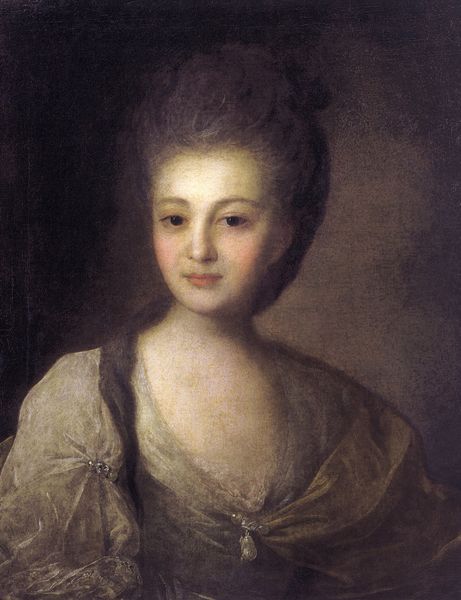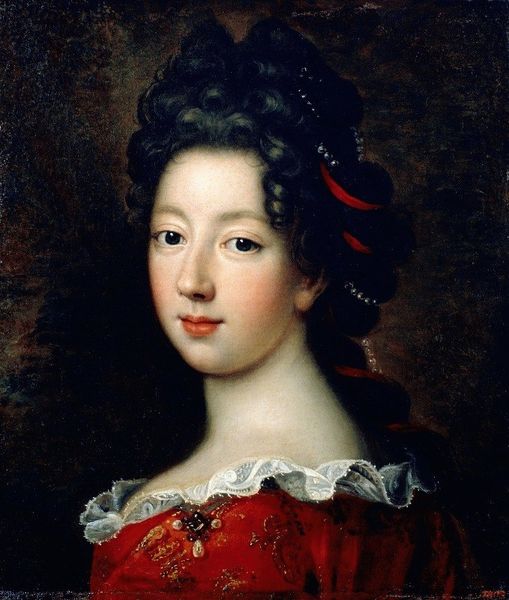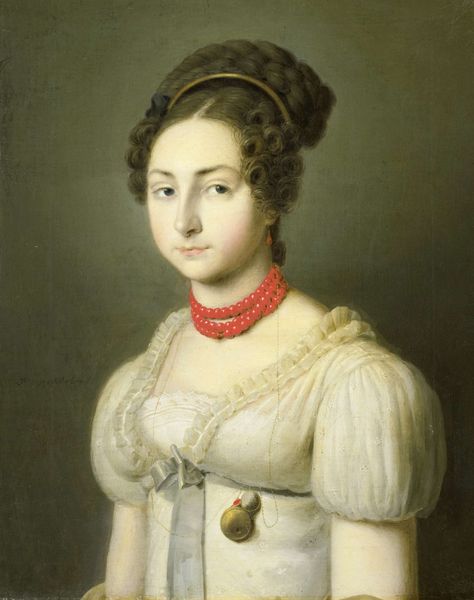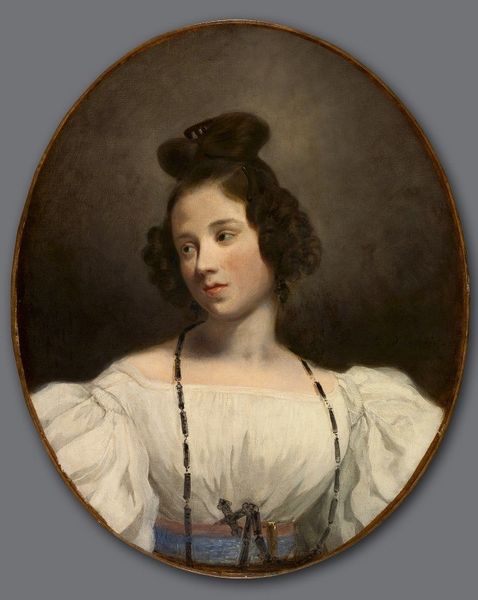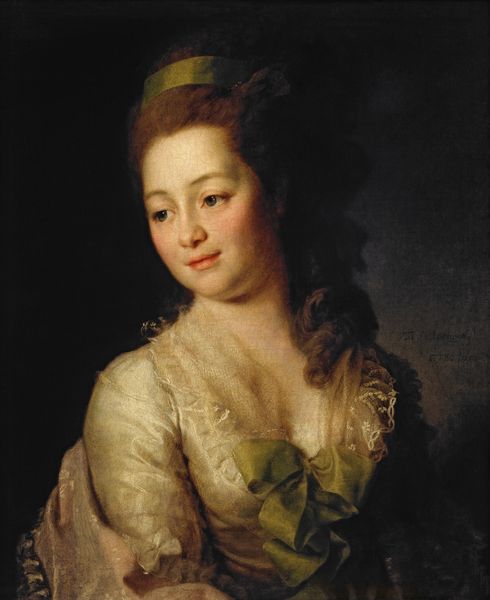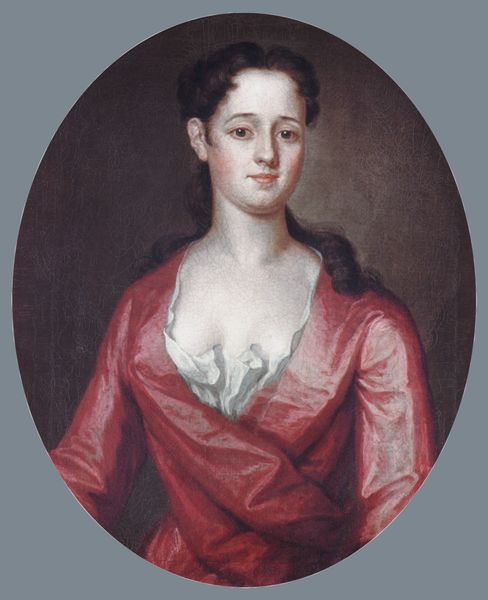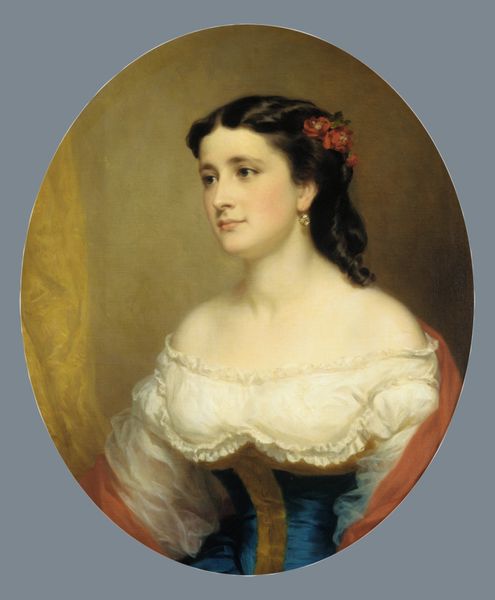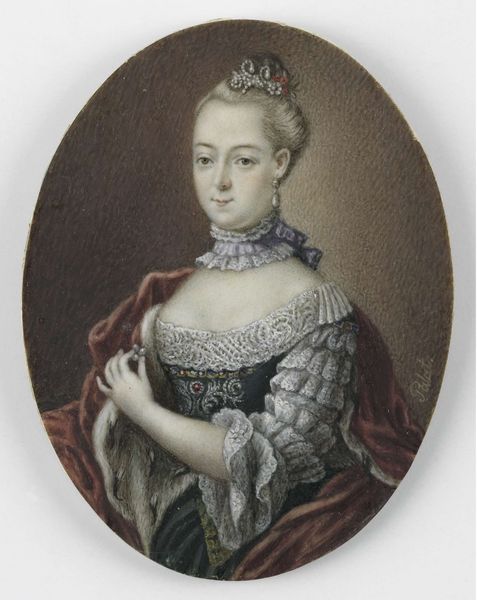
oil-paint
#
portrait
#
baroque
#
oil-paint
#
oil painting
#
russian-avant-garde
Copyright: Public domain
Ivan Nikitin painted this oil portrait of Anna Petrovna, sometime before his death in 1741. The oval format immediately focuses our attention, framing the sitter against a dark, undefined background. Nikitin masterfully uses light and shadow to model Anna’s face, capturing her youthful features and the soft texture of her skin. The vibrant red of her cloak, contrasted with the subdued tones of her dress, creates a visual hierarchy that emphasizes her presence and status. Consider how Nikitin employs formal elements to convey meaning. The restrained palette and smooth brushwork align with the conventions of court portraiture, yet the subject's gaze has a disarming directness. This challenges the traditional, idealized representation of nobility. Nikitin disrupts the expected formality, inviting a more intimate engagement with the sitter, which encourages viewers to question the constructed nature of identity and representation within the visual language of power. The painting's enduring appeal lies in its subtle destabilization of established norms, reminding us that art can be both a reflection of and a challenge to cultural conventions.
Comments
No comments
Be the first to comment and join the conversation on the ultimate creative platform.
